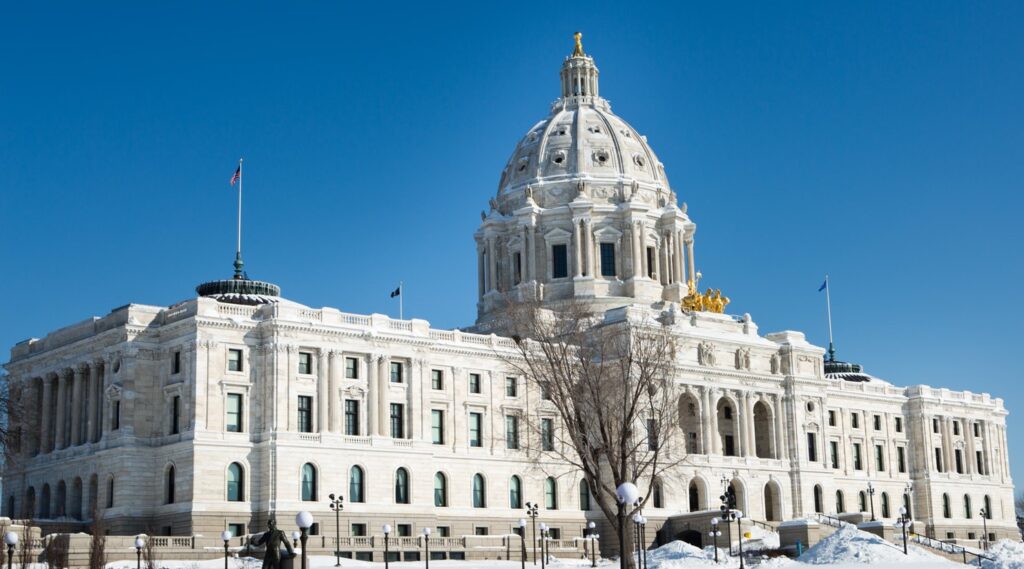 The 2024 election results have set the stage for an intriguing legislative landscape in Minnesota, with significant implications for disability policy in the upcoming 2025 session.
The 2024 election results have set the stage for an intriguing legislative landscape in Minnesota, with significant implications for disability policy in the upcoming 2025 session.
State Legislative Composition
The Minnesota Legislature enters 2025 with remarkably close margins in both chambers. In the Minnesota Senate, following a special election in Senate District 45 to replace Senator Kelly Morrison, the Democratic-Farmer-Labor (DFL) Party maintains its one-seat majority (34-33). The election of Ann Johnson Stewart, who previously served in the Minnesota Senate, preserved this narrow margin.
The Minnesota House presents an even more unique situation, with preliminary results indicating a rare 67-67 split between the DFL (Democratic) and GOP (Republican) parties. This shift was driven in part by the political transformation of the Minnesota Iron Range from a traditional DFL stronghold to solid GOP representation. Two districts (14B and 54B) are undergoing automatic recounts due to extremely close margins, though historically, Minnesota recounts rarely alter the results. This marks only the second time in Minnesota history—the first being in 1979—that the House has faced an even split.
Implications for Legislative Process
This legislative composition creates a distinctive environment for policymaking. Unlike in the U.S. Congress, where the Vice President can break ties in the Senate, Minnesota’s system for ties requires the parties to establish a power-sharing agreement. These negotiations will unfold in the coming weeks and will shape how legislation moves forward.
The close margins in both chambers mean individual legislators will have significant influence over legislation. This dynamic was evident during the 2023-2024 session, where similar conditions led to careful negotiation of policy priorities.
Impact on Disability Policy
The necessity for bipartisan cooperation in 2025 aligns well with disability policy’s historical record of cross-party support. Disability-related legislation typically attracts both DFL and GOP authors and supporters, positioning these initiatives favorably in an environment requiring broad consensus.
This bipartisan framework becomes especially crucial as we enter a budget year. The legislature and governor must collaborate to establish the biennial state budget before July 1st, 2025, when the new fiscal period begins, or risk a state government shutdown. The budget forecasts in the coming months will give us a much better picture of what is to come this legislative session.
Our Role in the 2025 Session
As Minnesota’s independent state agency for disability policy, the Minnesota Council on Disability maintains strong working relationships with legislators across all parties and geographic regions. Our focus remains on developing effective policy and fostering collaborations that enhance the lives of Minnesotans with disabilities.
Building on the momentum of the successful 2023 budget session, which saw the passage of numerous MCD priorities, we are well-positioned to continue our work of representing Minnesotans with disabilities. Through our established partnerships and commitment to non-partisan advocacy, MCD will continue advancing disability policy priorities during the 2025 legislative session.